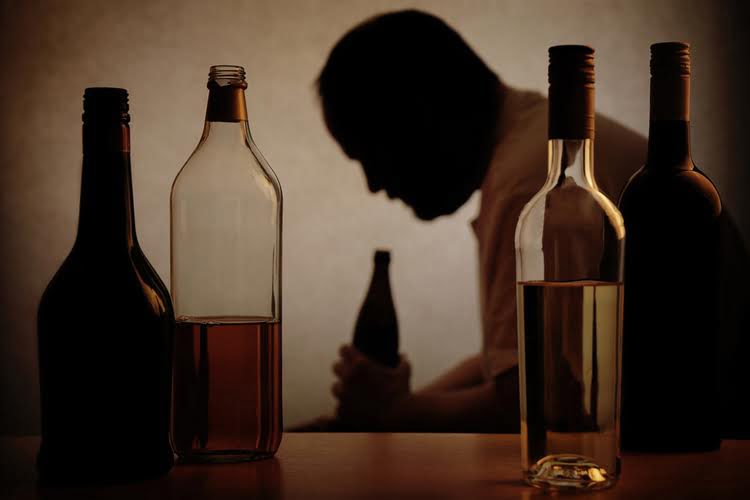Think about how much you believe the automatic thought now that you’ve come up with an adaptive response, and rate your belief. Determine what emotion(s) you are feeling now and at what intensity you are experiencing them. Next, you have an opportunity to come up with an adaptive response to those thoughts. This is where the real work happens, where you identify the distortions that are cropping up and challenge them. Since you must first identify the distortions you struggle with before you can effectively challenge them, this resource is a must-have. These distortions, while common and potentially extremely damaging, are not something we must simply resign ourselves to living with.

Cognitive Distortions and Their Effects
But by understanding these addictive thought patterns, you can challenge them – creating a pathway away from addiction and toward a better life in recovery. Addiction can change the way we think, the way we feel, and the way we behave as well. Similarly, you may have tried to get sober once or twice, slid back into drinking and using drugs, and decided, “I’m just never going to be able to stay sober.” You’re taking that very limited data to be decisive. People slip up, they have full relapses, but they keep at it and eventually have a long recovery. People who have or have had certain life experiences are also more likely to be affected by addiction. These include poverty, gender discrimination, poor schooling, and experiencing social injustices.
Emotional Reasoning
Sometimes these rules or assumptions help us to stick to our values or our moral code, but often they can limit and frustrate us. Beck, Burns, and other researchers in this area have developed numerous ways to identify, challenge, minimize, or erase these distortions from our thinking. A person who judges every experience by its perceived fairness has fallen for this fallacy, and will likely feel anger, resentment, and hopelessness when they inevitably encounter a situation that is not fair. No one is in complete control of what happens to them, and no one has absolutely no control over their situation. Even in extreme situations where an individual seemingly has no choice in what they do or where they go, they still have a certain amount of control over how they approach their situation mentally.
Control Fallacy
- And I look at the kitten thinking yeah, whatever, it’s a kitten, their cute.
- By replacing negative thoughts, we can increase positive feelings and actions.
- For example, someone attempting to stop drugs may think that if they do not continue using, they will experience more significant withdrawal symptoms or believe that the cravings will be intolerable without substances.
- On the physical side, a sustained neglect of personal appearance, poor hygiene, and listlessness may be signs.
When I could control my drinking, I could still charm a crowd and make new friends. One night, I taunted some fraternity guys who were in mourning for a frat brother killed in a car wreck. They jumped me in an alley, breaking my nose and leaving me with a deep gash above my eye. Except for a stranger’s intervention, they might have stomped me to death. One of my patients was a highly moral person who, when drinking, watched pornographic movies in front of his children.
Common Thinking Patterns in Addiction
As their craving deepens and their behavior deteriorates, their social circle narrows to other users or addicted individuals, feeding the delusion that heavy drinking and drug use is normal behavior. In the end, even these friends may disappear, leaving them isolated and alone. In order to succeed, however, we must learn to recognise the cognitive distortions that threaten to derail us – pushing us back toward the temptations of addiction even as we try to fight against dependency.
Find Support
- Those struggling with this distortion will only base their conclusions on a single incident.
- These stages are initiation, experimentation, regular usage, risky usage, dependence, addiction, and crisis/treatment.
- Substance abuse disorder is considered mild in the presence of two or three criteria.
- These feelings trap an addicted individual in a self-perpetuating cycle of drug use and self-loathing.
And individuals struggling with substance abuse are particularly vulnerable to turning negative thinking into distorted thoughts. There are dozens of recognized distorted thinking patterns researchers believe can be harmful in the long-run. For those in addiction recovery, Sober House addressing these distortions may be a matter of life or death. However, the two most famous approaches go to psychologist Aaron Beck and Dr. David Burns, who helped popularize these negative thinking patterns giving more examples and easy-to-remember names.
First, think about a recent scenario where you felt bad about your thoughts or behavior afterward. Write down a description of the scenario and the infraction (what you did to break the rule). Finally, come back to the present and think about how you feel right now. Are you still just as worried, or did the exercise help you think a little more realistically? These detailed, science-based exercises will equip you or your clients with tools to find new pathways to reduce suffering and more effectively cope with life stressors.

Legendary Musician Ray Charles Battled Decades-Long Heroin Addiction
It requires the right treatment to re-program your mind to live without them. If you decide to change the rule or assumption, the new version should maximize the advantages of the rule, minimize or limit the disadvantages, https://thetennesseedigest.com/top-5-advantages-of-staying-in-a-sober-living-house/ or both. Write down this new and improved rule and consider how you can put it into practice in your daily life. Cognitive distortions include assumptions and rules that we hold dearly or have decided we must live by.
- When an addicted individual is “on the wagon” or trying to cut back, mood swings become more pronounced.
- Addiction recovery requires a positive outlook above all, and this means being optimistic and embracing positive mental habits with an eye toward a future whose benefits are worth the effort needed to attain them.
- When your thoughts are slipping towards relapse and you’ve challenged whether they truly serve you, it’s time to take contrary action.
- Here’s an example- when a non-addicted person sees a kitten, their brain fires all these wonderful signals and you get butterflies and feel all warm and fuzzy and think, “omg, that kitten is soooo cute”!
These people will take the negative details of a situation and magnifies those while mental-filtering out any positive aspects. For example, they’ll only point out the negative aspects of someone and entirely disqualify the positive. These distorted thought processes lead to intense emotions ranging from excessive hyperactivity/happiness to situationally inappropriate outbursts of anger. When this happens, the individual unknowingly isolates himself from members of society who view him as unstable. In the beginning, you may need to challenge your thoughts regularly throughout the day.